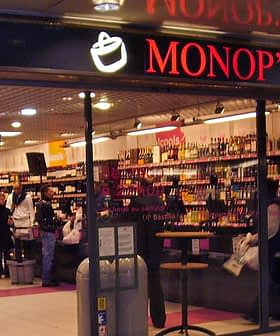Trade Commission Extends Tariffs on Spanish Black Olives

United States trade officials voted unanimously to extend tariffs on some Spanish table olive imports, as mandated by the Uruguay Round Agreements Act, due to concerns about material injury to the domestic industry. The decision came after a U.S. Court of Appeals upheld the legitimacy of the tariffs, despite criticism from Spain and the World Trade Organization, with the Olive Growers Council of America supporting the decision to maintain the tariffs to protect U.S. growers and packers.
United States trade officials marked the fifth anniversary of tariffs on some Spanish table olive imports by voting unanimously to extend them.
A four-member panel of the U.S. International Trade Commission (ITC) voted to keep tariffs on some Spanish black ripe table olive imports.
The vote was required under the Uruguay Round Agreements Act, which mandates that tariffs must be reviewed every five years.
See Also:Olive Oil Trade NewsThe commissioners determined their removal would “lead to continuation or recurrence of material injury within a reasonably foreseeable time.”
The decision comes two months after a U.S. Court of Appeals upheld a U.S. trade court ruling that found the antidumping and antisubsidy tariffs imposed by the U.S. Commerce Department on Spain’s three largest ripe table olive packers and exporters to the U.S. were legitimate.
The Court of Appeals’ ruling is expected to be final as the U.S. Supreme Court is highly unlikely to take the case if it is appealed.
The court’s decision was in stark contrast to the World Trade Organization’s November 2021 ruling, which said the U.S. tariffs were illegal under international law.
The U.S. ruling was also criticized by Spanish Minister of Agriculture, Fisheries and Food Luis Planas, who described the decision as “absolutely unacceptable” at a meeting of European agricultural ministers in Brussels.
“I hope we can resolve this,” he said. “We have gone from being the first to the third exporting country to the United States… This is a situation that we hope can be resolved favorably because it is unacceptable.”
Shortly after the Court of Appeals’ ruling in May, Spanish Economy Minister Carlos Cuerpo visited Washington, D.C., to discuss the tariffs.
“We have seen a willingness to continue moving forward on the part of the United States, and a channel of conversation and negotiation has been opened to see if we can resolve it,” he told reporters in Washington.
However, the Olive Growers Council of America hailed the decision to maintain the tariffs as necessary to protect U.S. growers and packers.
“The U.S. government and court systems have repeatedly confirmed over the last five years that the Spanish industry is still benefiting from unfair European Union subsidies and is still dumping its ripe olives in the U.S. market,” said chairman Michael Silveira.
“If it weren’t for the U.S. government’s ongoing AD/CVD [antidumping and countervailing duties for subsidized goods] orders on Spanish olives, American table olive production, and hundreds of family farmers and allied jobs would be in serious jeopardy,” he added.
The Court of Appeals’ decision ended a seven-year legal saga, which began with legal action in 2017 by the Coalition for Fair Trade in Ripe Olives, spearheaded by Musco Family Olive Co. and Bell-Carter Foods.
The group filed a petition with the Commerce Department alleging that subsidies provided to olive growers by the Spanish government and the E.U. Common Agricultural Policy (CAP) unfairly benefited olive packers and exporters.
The petitioners argued that the subsidies allowed Spanish companies to sell their packaged table olives in the U.S. at below-market prices.
In July 2018, the Commerce Department determined that Spanish ripe table olives were being subsidized. They passed this finding on to the ITC, which determined that the subsidized ripe table olive imports materially injured the domestic industry.
Based on the ITC findings, the Commerce Department authorized 35 percent anti-dumping and countervailing duties (though they were later lowered to 31 percent).
The tariffs’ impact was immediate, with Spain’s agriculture ministry estimating in February that they have cost producers, packers and exporters more than €208 million since 2017.
In response to the tariffs, the table olive producers and the Spanish Association of Table Olive Exporters and Producers (Asemesa) sued the Commerce Department.
After unsuccessfully justifying the tariffs at the U.S. Court of International Trade twice, the Commerce Department’s third submission was accepted. Asemesa quickly appealed.
Meanwhile, protests in the Andalusian capital of Seville and pressure from the government in Madrid spurred the E.U. to sue the U.S. at the WTO in January 2019.
In its complaint, the E.U. argued that the U.S. tariffs violated international trade rules because the CAP does not provide special benefits to table olive producers.
Adding to the pressure on Brussels, E.U. officials publicly expressed concern that the tariffs set a dangerous precedent and might encourage additional litigation against the CAP.
In November 2021, the WTO ruled in favor of the E.U. and found that anti-dumping and countervailing duties imposed in 2018 by the U.S. on imports of ripe table olives from Spain were illegal under international rules.
In its ruling, the WTO told the U.S. to “bring its measures into conformity” with its General Agreement on Tariffs and Trade and other free-trade rules.
The U.S. declined to appeal the WTO ruling and agreed to revise the tariffs. However, the Commerce Department kept most of the tariffs in place, which led to a public rebuke from the WTO in February 2024.









